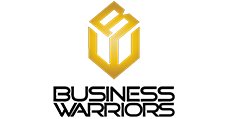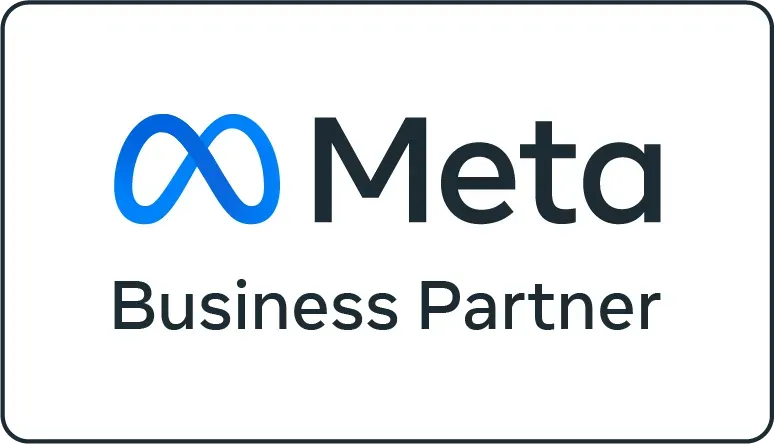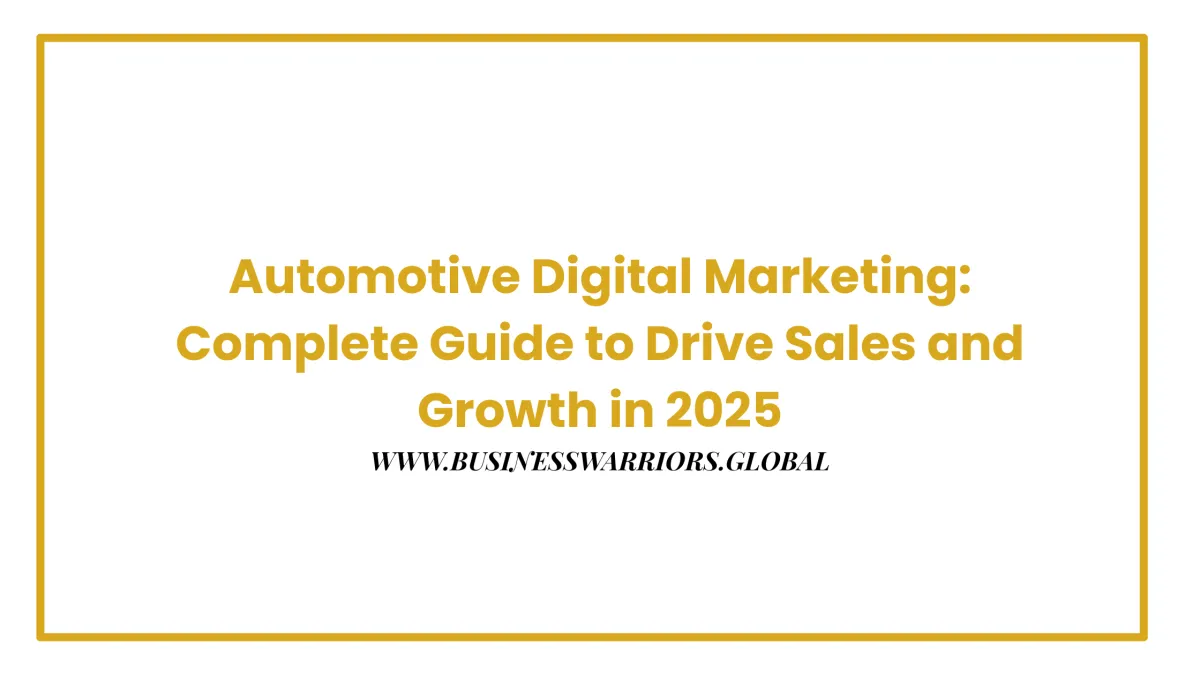
Automotive Digital Marketing: Complete Guide to Drive Sales and Growth in 2025
Key Takeaways
Automotive digital marketing combines SEO, PPC advertising management, social media marketing, and local search strategies to generate qualified leads and increase dealership sales
The automotive buying journey typically spans 2-3 months with 95% of car buyers researching online before visiting a dealership
Local search optimization is critical as 80% of automotive purchases happen within 25 miles of the buyer’s location
Successful automotive campaigns require specialized tracking systems to connect online marketing efforts to offline sales conversions
Industry-specific strategies outperform generic marketing approaches by 40% in lead quality and conversion rates
Understanding Automotive Digital Marketing
The automotive industry has undergone a dramatic digital transformation that fundamentally reshaped how customers discover, research, and purchase vehicles. Automotive digital marketing encompasses the comprehensive strategies, tools, and channels that automotive businesses use to attract, engage, and convert customers in the digital ecosystem.

Unlike other industries, automotive marketing faces unique challenges stemming from high-ticket purchases, extended buying cycles, and complex inventory management. The automotive space requires specialized expertise to navigate manufacturer requirements, seasonal fluctuations, and the intricate relationship between online research and offline sales conversions.
Current market statistics reveal the massive opportunity within automotive digital marketing. The global automotive industry represents a $2.8 trillion market, with digital marketing investment growing 15% annually. This growth reflects the industry’s recognition that traditional advertising alone cannot capture today’s digitally-savvy consumers. Developing a long term strategy is essential for sustainable online growth in the automotive sector.
Key stakeholders in automotive digital marketing include new car dealers, used car lots, auto parts retailers, repair shops, and OEM manufacturers. Each segment requires tailored marketing strategies that account for different customer journeys, price points, and service requirements. Automotive marketing companies leverage integrated strategies to maximize ROI, and industry-specific expertise is crucial for marketing automotive companies effectively. Successful automotive marketing agency partnerships understand these nuances and develop targeted campaigns for each business type.
The integration with traditional automotive sales processes and CRM systems adds another layer of complexity. Modern automotive digital strategies must seamlessly connect online marketing efforts with existing dealership operations, ensuring lead data flows efficiently to sales teams and customer journeys remain consistent across all touchpoints. These digital marketing efforts directly contribute to a company's growth by supporting strategic positioning and effective lead tracking.
Tailored marketing strategies are critical for automotive businesses to stand out in a crowded marketplace. Companies need customized, long-term solutions that address specific operational needs and ensure sustainable success both online and offline.
Introduction to the Auto Industry
The automotive industry is one of the most dynamic and competitive markets, constantly evolving to meet the demands of modern consumers. In this fast-paced environment, digital marketing has become a game-changer for automotive businesses looking to stand out and connect with potential customers. As an automotive marketing agency, understanding the unique landscape of the auto industry is essential for crafting effective marketing strategies that drive more sales and build lasting customer relationships.
With the rise of digital marketing, automotive businesses now have access to powerful tools like search engine optimisation (SEO), Google Ads, and social media marketing to boost their online visibility and attract more customers. These strategies not only help businesses reach a wider audience but also enable them to engage with high-intent buyers at every stage of the purchasing journey. By partnering with a digital marketing agency that specializes in automotive marketing, businesses can leverage industry expertise to develop tailored campaigns, maximize their return on investment, and stay ahead in a highly competitive market. Whether you’re a dealership, auto parts retailer, or service provider, embracing digital marketing is key to driving more sales and achieving long-term success in the automotive industry.
Understanding Customer Journeys
Customer journeys in the automotive industry are anything but straightforward. From initial research to final purchase, potential customers interact with a variety of touchpoints—both online and offline—before making a decision. Understanding these customer journeys is crucial for developing marketing strategies that truly resonate with your target audience and drive meaningful results.
Automotive marketing agencies leverage deep industry knowledge to map out these journeys, identifying key moments where marketing efforts can make the biggest impact. By analyzing how customers move from awareness to consideration and ultimately to purchase, businesses can create targeted marketing campaigns that address specific pain points and motivations. Whether it’s through engaging social media marketing, informative content powered by search engine optimisation, or personalized email campaigns, aligning your marketing strategy with the customer journey ensures you’re reaching potential customers with the right message at the right time.
A data-driven approach to understanding customer journeys not only helps generate more leads but also improves conversion rates and customer satisfaction. By focusing on the unique needs and behaviors of automotive customers, businesses can craft strategies that turn interest into action, driving more sales and building lasting relationships in a competitive industry.
Core Digital Marketing Strategies for Automotive Businesses That An Automotive Marketing Agency Does
Search Engine Optimization (SEO)
Search engine optimisation forms the foundation of successful automotive digital marketing, given that 68% of automotive customer journeys begin with online searches. Technical SEO requirements for automotive websites involve complex inventory management systems, dynamic pricing updates, and location-specific content that traditional SEO approaches cannot adequately address.
Content marketing strategies within automotive SEO focus on creating valuable resources that address customer pain points throughout their research process. Vehicle reviews, comprehensive buying guides, maintenance tips, and industry news establish expertise while capturing organic traffic from high intent buyers. This content approach generates more qualified leads than generic automotive content.
Local SEO agency tactics prove especially critical for automotive businesses, as customers typically search for services “near me” and make purchasing decisions within their geographic area. Optimizing for location-based keywords, maintaining consistent NAP (Name, Address, Phone) information across directories, and creating location-specific landing pages significantly improve local search rankings.
Link building through automotive directories, manufacturer partnerships, and industry publications provides the authority signals search engines require. The expected timeline for automotive SEO results typically spans 3-6 months for initial improvements, with full organic growth materializing after 12-18 months of consistent implementation.
Google Ads & Pay-Per-Click (PPC) Advertising For Improving Your Digital Presence
Google Ads strategies for automotive keywords require careful budget management, with average cost-per-click ranging from $2-8 depending on geographic area and competition levels. Paid ads provide immediate visibility in search results, allowing automotive businesses to compete effectively with larger brands and third-party platforms. Vehicle listing ads (VLA) and automotive inventory ads setup allows dealerships to showcase specific vehicles directly in search results, dramatically improving click-through rates for high intent buyers.
Facebook and Instagram advertising excel at brand awareness and lead generation, particularly for younger demographics who research extensively on social media platforms. These platforms’ sophisticated targeting capabilities enable automotive businesses to reach users based on specific interests, behaviors, and life events that indicate purchase readiness.
Retargeting campaigns for website visitors and previous customers create multiple touchpoints throughout the extended automotive buying cycle. These campaigns nurture prospects who may not convert immediately, keeping the dealership top-of-mind during their 2-3 month research process.
Budget allocation recommendations suggest distributing paid advertising spend across multiple channels: 60% Google Ads for capturing high-intent searches, 25% Facebook Ads for brand awareness and remarketing, and 15% across other platforms like YouTube, LinkedIn, or automotive-specific networks depending on target audience characteristics. It is crucial to monitor campaigns closely to avoid wasted spend and ensure advertising budgets are used efficiently.
Local Search Marketing
Google My Business optimization represents one of the highest-ROI activities for automotive businesses, requiring regular updates with photos, hours, inventory information, and proactive review management. A well-optimized Google My Business profile can increase dealership foot traffic by 25-40% according to industry studies.
Local citation building across automotive directories like AutoTrader, Cars.com, and CarGurus ensures consistent business information across the web while providing additional lead generation opportunities. These citations also improve local search rankings and provide backlinks that benefit overall SEO performance.
Geo-targeted advertising campaigns within dealership trade areas maximize advertising efficiency by focusing spend on customers most likely to visit physical locations. Location-based landing pages for businesses with multiple dealership locations help capture local searches while providing relevant, location-specific information.
Mobile optimization for local searches becomes critical given that 75% of automotive searches happen on mobile devices. Mobile-optimized websites with fast loading speeds, click-to-call functionality, and easy navigation significantly improve conversion rates from local searches.
Unique Challenges in Automotive Digital Marketing
The automotive industry presents several unique marketing challenges that require specialized knowledge and industry expertise to overcome effectively. Long sales cycles spanning 60-90 days on average demand sophisticated nurture campaigns that maintain engagement without overwhelming prospects during their extended research process.
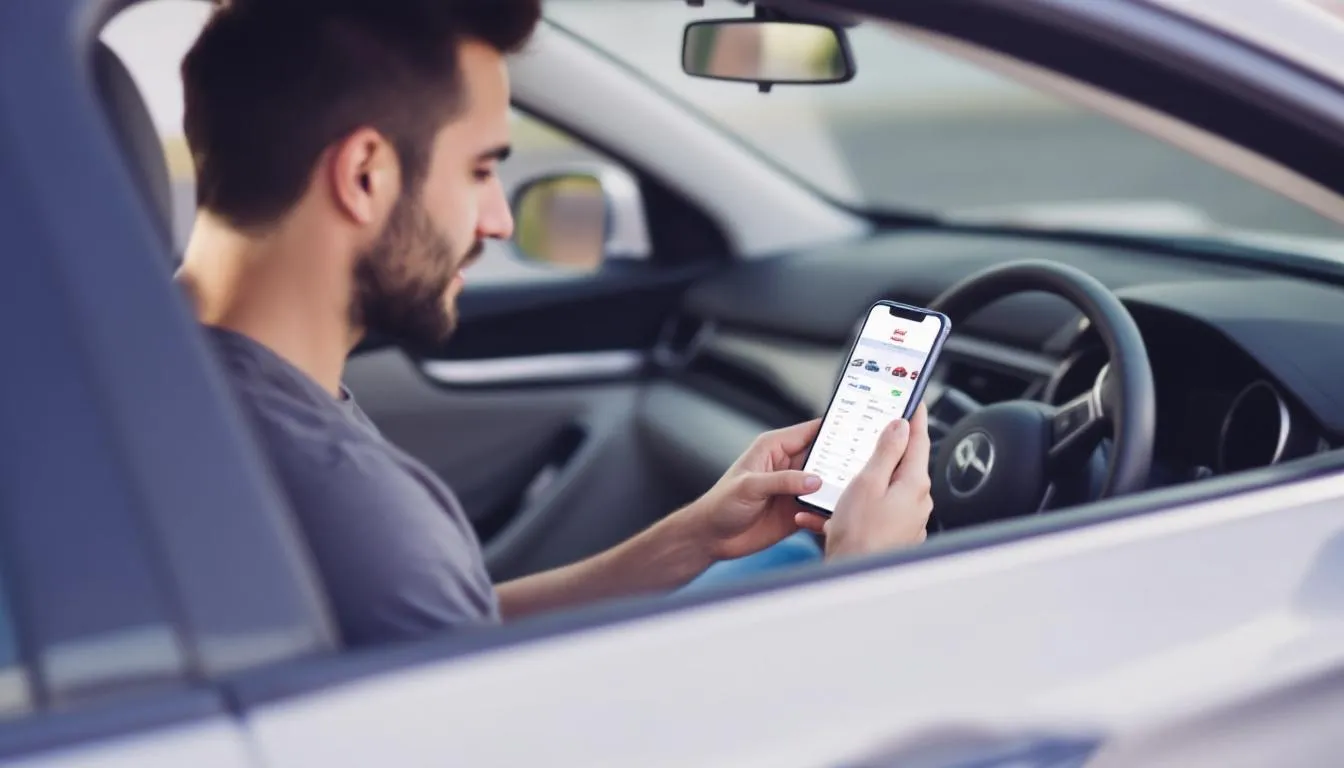
High competition from large automotive platforms and manufacturer advertising budgets creates an environment where automotive businesses must work harder and smarter to capture customer attention. Big brands are dominant players in the automotive industry, often controlling search results and digital visibility. Competing with these big brands requires specialized, data-driven marketing strategies tailored to help smaller businesses stand out. National brands often have significant advertising advantages, making local differentiation and specialized targeting essential for smaller dealers and service providers.
Inventory management complexities affect website content and advertising accuracy in ways that other industries don’t experience. Vehicles sell quickly, prices change frequently, and model availability fluctuates, requiring dynamic content management systems that can update automatically to prevent customer disappointment and wasted advertising spend.
Attribution challenges linking online marketing to offline sales transactions complicate ROI measurement and campaign optimization. Unlike e-commerce businesses where conversions happen entirely online, automotive businesses must track customers from initial digital touchpoint through dealership visits to final purchase, often weeks or months later.
Seasonal fluctuations create additional complexity, with 30% higher sales volumes typically occurring during March-May and September-November periods. Marketing strategies must account for these patterns, adjusting budgets and messaging to capitalize on peak buying seasons while maintaining consistent lead flow during slower periods.
Price sensitivity and comparison shopping behavior require competitive positioning strategies that go beyond simple price matching. Customers research extensively across multiple platforms, comparing not just prices but financing options, trade-in values, and service offerings, demanding comprehensive value propositions rather than price-focused messaging alone.
Essential Digital Services for Automotive Industry Marketing Success
Website Design and Development
Modern automotive websites require mobile-responsive design with loading speeds under 3 seconds for 90% of pages to meet customer expectations and search engine requirements. User friendly interfaces that accommodate complex inventory browsing, financing calculations, and service scheduling create positive user experiences that improve conversion rates.
VIN-specific landing pages and dynamic inventory integration ensure customers can find detailed information about specific vehicles while maintaining SEO benefits from unique page content. These technical requirements exceed typical web design needs and require automotive-specific development expertise.
Lead capture forms with financing calculators and trade-in estimators provide immediate value to visitors while collecting contact information for follow-up. These tools address key customer concerns during the research phase and significantly improve lead quality by qualifying prospects before they enter the sales funnel.
Virtual showroom capabilities and 360-degree vehicle photography enable customers to explore vehicles remotely, addressing concerns about visiting dealerships during initial research phases. Studies show that 64% of customers would purchase a vehicle without an in-person test drive if high-quality 360-degree videos were available.
Conversion optimization targeting 2-5% website conversion rates requires ongoing testing and refinement of page layouts, form placement, and call-to-action messaging. Automotive websites typically achieve lower conversion rates than other industries due to high consideration purchases, making optimization particularly important for generating leads and more sales.
Social Media Marketing
Platform-specific strategies maximize the unique strengths of each social media channel within automotive marketing. Facebook excels at community building and local engagement, Instagram showcases visual vehicle content and lifestyle associations, while YouTube provides platforms for detailed vehicle demonstrations and customer testimonials.
Customer testimonial campaigns and user-generated content promotion create authentic social proof that influences purchasing decisions more effectively than traditional advertising. Real customers sharing their experiences build trust and credibility that paid advertising cannot replicate.
Live streaming of new vehicle reveals and automotive events creates engagement opportunities that drive immediate traffic to dealerships and websites. These real-time interactions allow for immediate customer questions and create urgency around special promotions or new model availability.
Social commerce integration for parts and accessories sales provides additional revenue streams while maintaining customer relationships beyond initial vehicle purchases. This approach creates ongoing touchpoints that can lead to service appointments, repeat customers, and referral opportunities.
Community management and customer service response protocols ensure consistent brand representation across all social media touchpoints. Quick, professional responses to inquiries and reviews demonstrate excellent customer service and can influence potential customers researching the business.
Reputation Management
Review monitoring across Google, Facebook, DealerRater, and industry-specific platforms provides early warning systems for potential reputation issues while identifying opportunities to showcase positive customer experiences. Automotive businesses face particular reputation challenges due to the high-stakes nature of vehicle purchases and financing.
Response strategies for both positive and negative customer feedback require careful crafting to maintain professional brand image while addressing legitimate concerns. Public responses to reviews serve dual purposes: resolving individual customer issues while demonstrating commitment to customer satisfaction for future prospects.
Proactive review generation campaigns targeting recent customers create systematic approaches to building positive online reputations. These campaigns typically achieve better results than reactive approaches and help dilute the impact of occasional negative reviews through volume of positive feedback.
Crisis management protocols for major service or sales issues prevent small problems from becoming viral reputation disasters. Having predetermined response procedures and communication channels enables quick, effective responses that minimize damage and demonstrate professional handling of difficult situations.
Brand monitoring for mentions across social media and automotive forums provides insights into customer perceptions and competitor activities. This intelligence helps inform marketing strategies and identify emerging issues before they impact business operations.
The Importance of Mobile Optimization
In today’s digital-first world, mobile optimization is no longer optional for automotive businesses—it’s essential. With the majority of potential customers using smartphones and tablets to search for automotive services, browse inventory, and compare prices, having a user friendly, mobile-optimized website is critical for capturing attention and driving more sales.
A mobile-optimized website ensures that visitors enjoy a seamless experience, whether they’re scheduling a service, exploring vehicle options, or contacting your team. This not only improves customer satisfaction but also boosts your search engine rankings, as search engines like Google prioritize mobile-friendly sites in their results. For automotive businesses, this translates to increased foot traffic, higher engagement, and ultimately, more sales.
As a digital marketing agency with expertise in the automotive industry, we understand the importance of delivering a website that meets the expectations of today’s mobile-savvy customers. From responsive design to fast loading times and intuitive navigation, our approach ensures your digital presence is optimized for measurable results. By prioritizing mobile optimization, automotive businesses can connect with their target audience wherever they are and turn online interest into real-world customers.
The Role of Emerging Technologies
Emerging technologies are transforming the automotive industry, offering new ways for businesses to connect with potential customers and drive business growth. Innovations like artificial intelligence, machine learning, and automation are enabling automotive marketing agencies to develop smarter, more effective marketing strategies that deliver measurable results.
From AI-powered chatbots that provide instant customer support to personalized marketing campaigns driven by data analytics, these technologies help automotive businesses engage their target audience with greater precision. Voice search optimization and predictive analytics are also opening up new opportunities to reach high-intent buyers at the right moment in their customer journey.
By embracing these advancements, automotive businesses can stay ahead of the competition and deliver exceptional customer experiences that lead to more leads and sales. As a forward-thinking digital marketing agency, we’re committed to helping our clients leverage the latest technologies to achieve business growth and long-term success. Whether you’re looking to enhance your digital strategy or launch innovative campaigns, staying at the forefront of emerging technologies is key to thriving in the modern automotive industry.
Measuring ROI and Performance in Automotive Marketing
Effective measurement of automotive digital marketing requires understanding industry-specific key performance indicators that connect marketing activities to business outcomes. Cost per lead typically ranges from $50-150 depending on channel and geographic market, while lead-to-sale conversion rates average 8-12% for qualified leads.
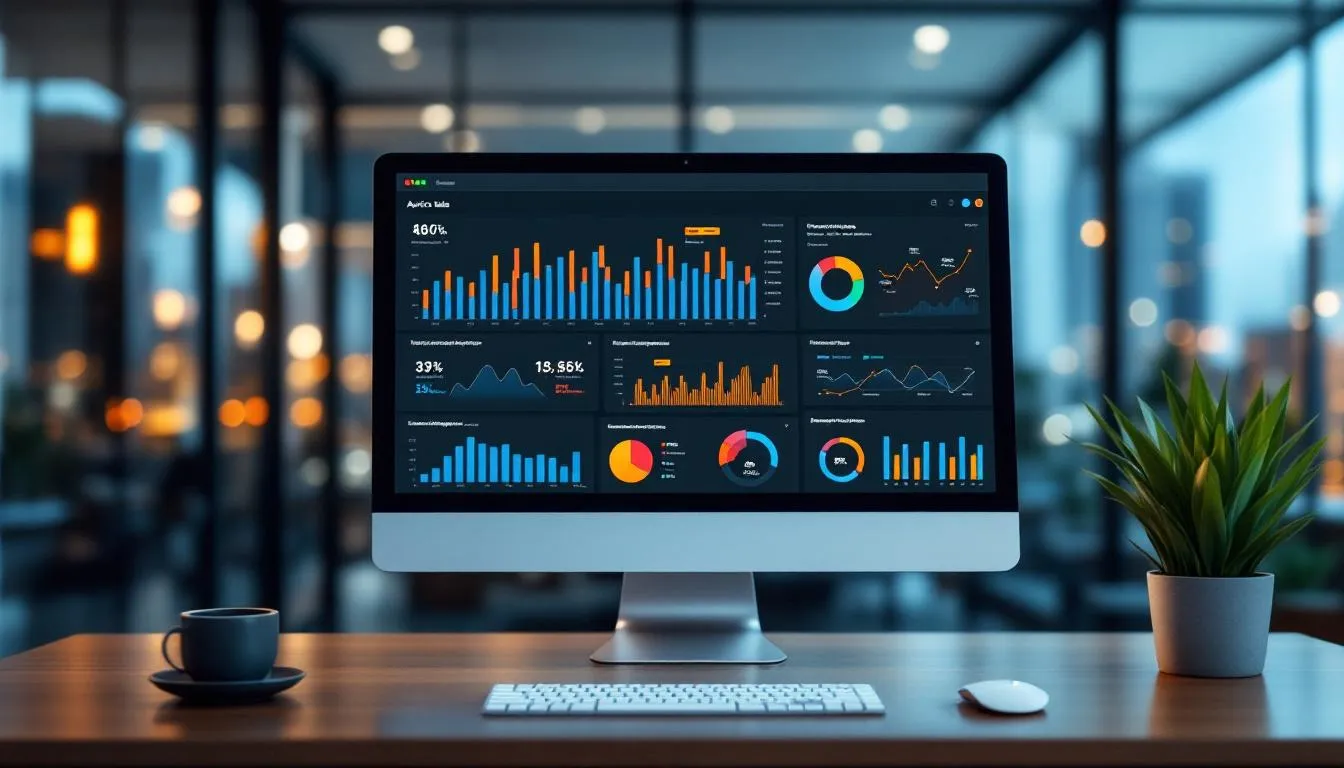
Attribution modeling connecting online touchpoints to dealership visits and sales requires sophisticated tracking systems that bridge digital and physical customer interactions. Call tracking integration with CRM systems provides crucial data for understanding which marketing channels generate phone leads and their conversion rates.
Multi-channel analytics using Google Analytics 4, Facebook Pixel, and automotive-specific tools provide comprehensive visibility into customer journeys across all digital touchpoints. These systems must integrate with existing dealership management systems to provide complete ROI visibility.
Monthly reporting templates covering traffic, leads, sales, and ROAS metrics enable consistent performance evaluation and strategic adjustments. CRM integration requirements for Ford, Toyota, Honda, and other manufacturer systems add complexity but provide essential data for optimizing marketing campaigns.
Customer lifetime value calculations become particularly important in automotive marketing due to service revenue, repeat purchases, and referral potential that extends well beyond initial vehicle sales. Understanding these metrics enables more sophisticated budget allocation and campaign optimization decisions.
Staying Ahead of the Competition
In the ever-evolving automotive industry, staying ahead of the competition is essential for driving business growth and achieving lasting success. With new technologies and marketing strategies emerging all the time, automotive businesses must be proactive in adapting their approach to attract and retain customers.
A comprehensive marketing strategy that combines search engine optimisation, social media marketing, and the latest digital innovations can give your business a significant edge. By partnering with a marketing agency that specializes in the automotive industry, you gain access to proven expertise, industry insights, and cutting-edge tools that help you outperform competitors and achieve measurable results.
Our team is dedicated to helping clients develop strategies that not only meet their current marketing needs but also position them for future success. Whether you’re looking to boost your digital presence, generate more leads, or drive business growth, we’re here to help you stay ahead in a highly competitive market. With the right marketing strategy and a commitment to continuous improvement, your automotive business can lead the way and set new standards for success in the industry.
Implementation Best Practices and Timeline
Successful automotive digital marketing implementation follows a structured approach that builds foundation elements before advancing to complex strategies. Phase 1 (Months 1-2) focuses on website audit, competitor analysis, and baseline metric establishment to understand current performance and identify improvement opportunities.
Phase 2 (Months 3-4) implements core SEO improvements, Google My Business optimization, and initial paid campaign launches. This phase establishes fundamental digital presence while beginning lead generation activities that provide immediate business value.
Phase 3 (Months 5-6) introduces content marketing rollout, comprehensive social media strategy activation, and systematic review program implementation. These longer-term strategies build upon the foundation established in earlier phases while expanding reach and engagement.
Ongoing optimization cycles with monthly performance reviews and quarterly strategy adjustments ensure continuous improvement and adaptation to changing market conditions. Staff training requirements for sales teams on digital lead handling and follow-up protocols ensure marketing efforts translate into sales conversions.
Technology stack recommendations include CRM integration capabilities, call tracking systems, live chat functionality, and comprehensive analytics platforms. These tools must work together seamlessly to provide the data visibility and automation capabilities necessary for automotive marketing success.
The investment in automotive digital marketing typically shows measurable results within 6-9 months of consistent implementation, with full ROI potential realized after 12-18 months as SEO efforts mature and brand awareness builds through sustained marketing efforts.
For more information call us or book a free marketing plan with Business Warriors Digital Marketing Agency today
FAQ
How long does it take to see results from automotive digital marketing?
Results timelines vary significantly by marketing channel and implementation approach. Google Ads can generate immediate traffic and leads within 24-48 hours of campaign launch, making paid advertising the fastest way to test market response and generate quick wins. SEO typically shows initial improvements in 3-4 months with significant gains after 6-12 months of consistent optimization efforts. Social media marketing builds momentum over 2-3 months before delivering consistent lead generation. Full digital marketing integration usually delivers optimal ROI after 6-9 months of consistent implementation across all channels.
Ask out SEO Agency if you want anything more specific
What budget should automotive businesses allocate for digital marketing?
Industry benchmarks suggest allocating 8-12% of gross revenue for established dealerships, while new locations may need 15-20% to build initial market presence and brand awareness. Minimum effective budgets typically start at $5,000-8,000 monthly for small dealerships, with larger operations requiring $15,000 or more to compete effectively across all digital channels. Budget distribution should focus 40% on paid advertising, 30% on SEO and content marketing, 20% on social media marketing, and 10% on tools and analytics. ROI expectations range from 3:1 to 5:1 return on digital marketing investment within the first year of implementation.
Why do automotive businesses need specialized digital marketing agencies?
Automotive digital marketing requires industry-specific knowledge of unique buying behavior patterns, seasonal trends, and complex manufacturer requirements that generic marketing agencies cannot adequately address. Understanding complex inventory management systems, financing options, and trade-in processes enables more effective campaign development and optimization. Experience with automotive CRM systems, DMS integration, and manufacturer compliance requirements ensures marketing efforts align with existing business operations. Access to automotive-specific tools, platforms, and industry connections often delivers better campaign performance than generalist approaches.
How important is local search optimization for automotive businesses?
Local search optimization represents one of the highest-ROI marketing activities for automotive businesses, with 83% of automotive shoppers visiting dealerships within 20 miles of their location. Local searches convert 5 times higher than general automotive searches due to immediate purchase intent and geographic relevance. Google My Business optimization alone can increase dealership visits by 25-40% through improved local search visibility. Local SEO delivers particularly strong ROI for service departments and used car sales where customers prioritize convenience and proximity over specific brand preferences.
What makes automotive social media marketing different from other industries?
Automotive social media marketing emphasizes visual-heavy content that showcases vehicle features, interiors, and lifestyle associations that help customers envision ownership experiences. Community building around brand loyalty and automotive enthusiasm creates stronger customer relationships than transactional approaches. Customer testimonials and real ownership experiences carry particular weight in automotive purchasing decisions due to the significant financial investment involved. Integration with inventory management systems enables real-time vehicle availability and pricing updates that keep social media content current and actionable for potential buyers.
You Might Also Like
How to Boost Local SEO Using Video on Your Google Business Profile
Local SEO Services: Complete Guide to Dominating Local Search in 2025
Local SEO Package: Complete Guide to Choosing the Right Service for Your Business
